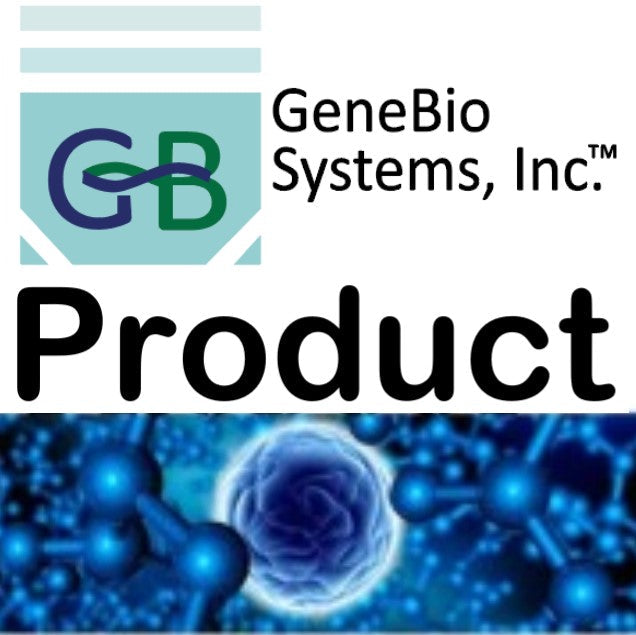Gene Bio Systems
Recombinant Human Fibroblast growth factor receptor 1(FGFR1),partial
Recombinant Human Fibroblast growth factor receptor 1(FGFR1),partial
SKU:CSB-EP008642HUa0
Couldn't load pickup availability
Size: 200ug. Other sizes are also available. Please Inquire.
In Stock: No
Lead time: 10-20 working days
Research Topic: Cancer
Uniprot ID: P11362
Gene Names: FGFR1
Organism: Homo sapiens (Human)
AA Sequence: RPSPTLPEQAQPWGAPVEVESFLVHPGDLLQLRCRLRDDVQSINWLRDGVQLAESNRTRITGEEVEVQDSVPADSGLYACVTSSPSGSDTTYFSVNVSDALPSSEDDDDDDDSSSEEKETDNTKPNRMPVAPYWTSPEKMEKKLHAVPAAKTVKFKCPSSGTPNPTLRWLKNGKEFKPDHRIGGYKVRYATWSIIMDSVVPSDKGNYTCIVENEYGSINHTYQLDVVERSPHRPILQAGLPANKTVALGSNVEFMCKVYSDPQPHIQWLKHIEVNGSKIGPDNLPYVQILKTAGVNTTDKEMEVLHLRNVSFEDAGEYTCLAGNSIGLSHHSAWLTVLEALEERPAVMTSPLYLE
Expression Region: 22-376aa
Sequence Info: Extracellular Domain
Source: E.coli
Tag Info: N-terminal 6xHis-tagged
MW: 43.4 kDa
Alternative Name(s): Basic fibroblast growth factor receptor 1 Short name: BFGFR Short name: bFGF-R-1 Fms-like tyrosine kinase 2 Short name: FLT-2 N-sam Proto-oncogene c-Fgr CD_antigen: CD331 BFGFR, CEK, FGFBR, FLG, FLT2, HBGFR
Relevance: Tyrosine-protein kinase that acts as cell-surface receptor for fibroblast growth factors and plays an essential role in the regulation of embryonic development, cell proliferation, differentiation and migration. Required for normal mesoderm patterning and correct axial organization during embryonic development, normal skeletogenesis and normal development of the gonadotropin-releasing hormone (GnRH) neuronal system. Phosphorylates PLCG1, FRS2, GAB1 and SHB. Ligand binding leads to the activation of several signaling cascades. Activation of PLCG1 leads to the production of the cellular signaling molecules diacylglycerol and inositol 1,4,5-trisphosphate. Phosphorylation of FRS2 triggers recruitment of GRB2, GAB1, PIK3R1 and SOS1, and mediates activation of RAS, MAPK1/ERK2, MAPK3/ERK1 and the MAP kinase signaling pathway, as well as of the AKT1 signaling pathway. Promotes phosphorylation of SHC1, STAT1 and PTPN11/SHP2. In the nucleus, enhances RPS6KA1 and CREB1 activity and contributes to the regulation of transcription. FGFR1 signaling is down-regulated by IL17RD/SEF, and by FGFR1 ubiquitination, internalization and degradation.
Reference: "Diverse forms of a receptor for acidic and basic fibroblast growth factors." Johnson D.E., Lee P.L., Lu J., Williams L.T. Mol. Cell. Biol. 10:4728-4736(1990)
Purity: Greater than 85% as determined by SDS-PAGE.
Storage Buffer: Tris-based buffer,50% glycerol
Storage: The shelf life is related to many factors, storage state, buffer ingredients, storage temperature and the stability of the protein itself. Generally, the shelf life of liquid form is 6 months at -20℃/-80℃. The shelf life of lyophilized form is 12 months at -20℃/-80℃.
Notes: Repeated freezing and thawing is not recommended. Store working aliquots at 4℃ for up to one week.


